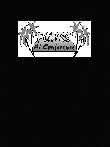Published:
May 1999
Proceedings:
Proceedings of the Twelfth International Florida Artificial Intelligence Research Society Conference (FLAIRS 1999)
Volume
Issue:
Proceedings of the Twelfth International Florida Artificial Intelligence Research Society Conference (FLAIRS 1999)
Track:
All Papers
Downloads:
Abstract:
The present work mainly reflects insights from a case study in the validation of inductive inference systems. Although it is somehow risky to generalize, the results bear evidence of some more general phenomena, at least. As inductive inference of recursive functions is a rather narrow, thoroughly formalized, and sufficiently understood area, one might expect that intelligent systems validation can hardly do better in application domains which are less constrained. The first general insight is that black box validation does not work. Even more, white box validation can only succeed, if the system to be validated can be assumed to belong to some subclass of candidates. Second, knowledge sources for intelligent systems validation have been classified into domain knowledge, problem knowledge, and system knowledge. System knowledge is considered as a lattice, to allow for navigation to separate system properties which can be verified by testing from those which have to be known in advance. This yields a well-formalized background of determining testability issues.

FLAIRS
Proceedings of the Twelfth International Florida Artificial Intelligence Research Society Conference (FLAIRS 1999)
ISBN 978-1-57735-080-4
Published by The AAAI Press, Menlo Park, California.
